
Countries in transition and weak research and innovation (R&I) systems face the problem how to prioritise and concentrate their limited R&I resources. The very low levels of both public and private funding of R&I, the lack of critical mass in universities and research organisations and the limited pockets of R&I strengths, form a barrier for reform and change. So where to start when there are multiple issues and bottlenecks to tackle in these transition countries?
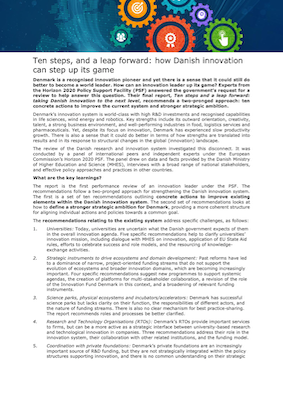
Denmark is a recognised innovation pioneer and yet there is a sense that it could still do better to become a world leader. How can an innovation leader up its game? Experts from the Horizon 2020 Policy Support Facility (PSF) answered the government’s request for a review to help answer this question. Their final report, Ten steps and a leap forward: taking Danish innovation to the next level, recommends a two-pronged approach: ten concrete actions to improve the current system and stronger strategic ambition.
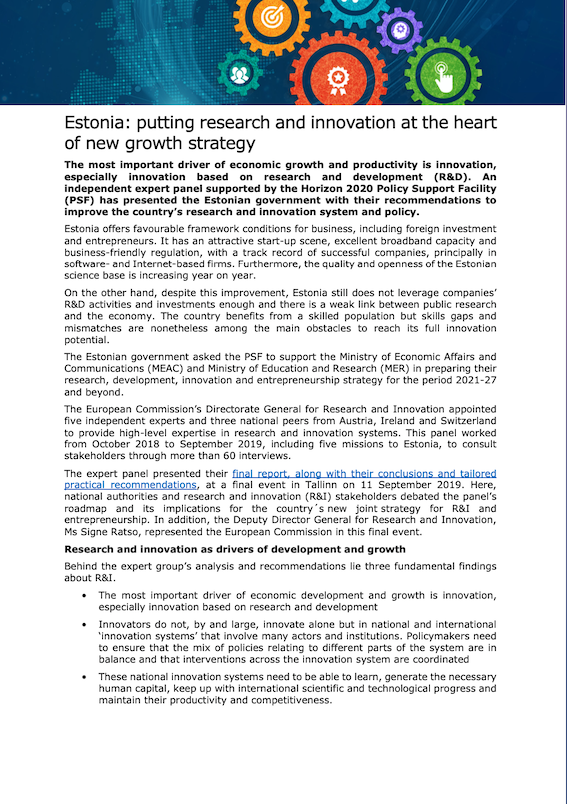
Summary article of the Peer Review of the Estonian Research and Innovation system.
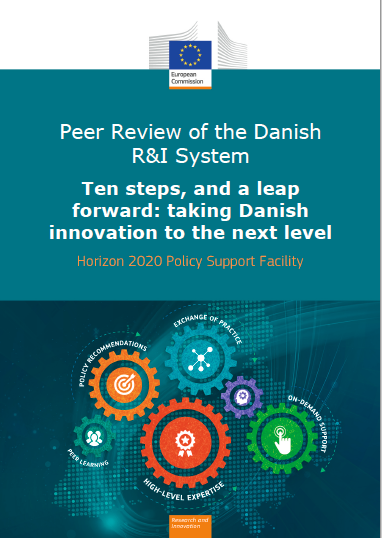
Denmark is among Europe’s innovation leaders, with a strong science base, high overall investments in R&D activities, and particular strengths in a range of fields. While this position is under no immediate threat, this review finds Denmark failing to fully leverage its strengths and to adjust to a changing global innovation landscape. The review recommends a number of specific changes – evolving the role of particular parts of the Danish innovation system, enhancing the coordination across them, and adding particular new features.
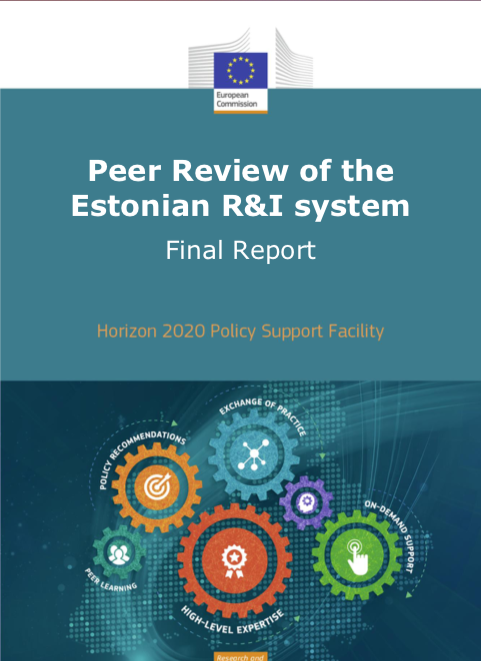
The Estonian government requested specific support from the PSF to support the work of the Ministry of Economic Affairs and Communications (MEAC) and Ministry of Education and Research (MER) in preparing to produce a joint research, development, innovation and entrepreneurship strategy for the period 2021-27 and onwards, via a general assessment of the effectiveness of the research and innovation (R&I) system, and a specific assessment of the role and impact of the R&I system in promoting added-value creation.
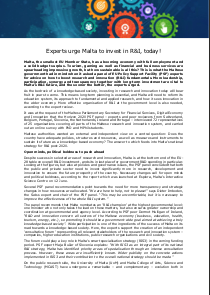
Summary article of the Peer Review of the Maltese Research and Innovation system.
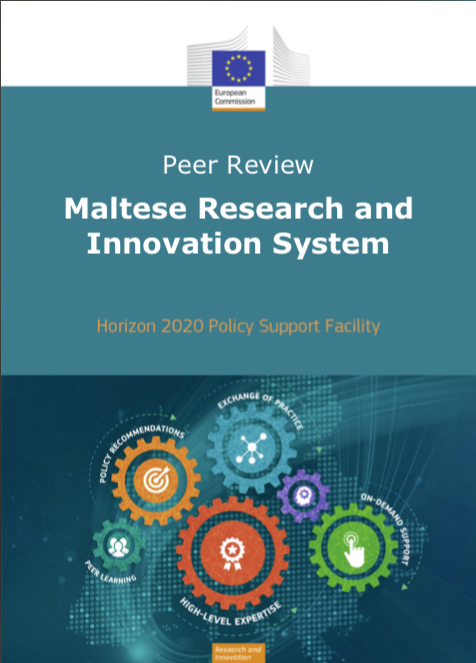
The aim of the Peer Review of Malta’s R&I system is to feed into the preparation of Malta’s national strategy for R&D and innovation post-2020.
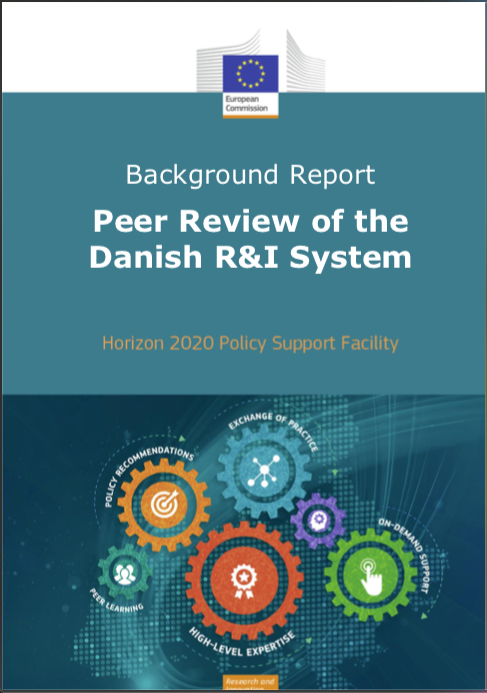
This background report for the Peer Review of the Danish R&I system focuses on providing the key indicators on knowledge-based innovation in Denmark and sets these indicators in the context of the developments in innovation policy in the country. Appendices to this report (separate reports) entail a self-assessment of the Danish knowledge-based innovation system by the Danish Ministry of Education and Science and a literature review and assessment of the Danish knowledge-based innovation support system, commissioned by the Ministry.

Peer Review of the Bulgarian Research and Innovation systems: Executive summary in Bulgarian
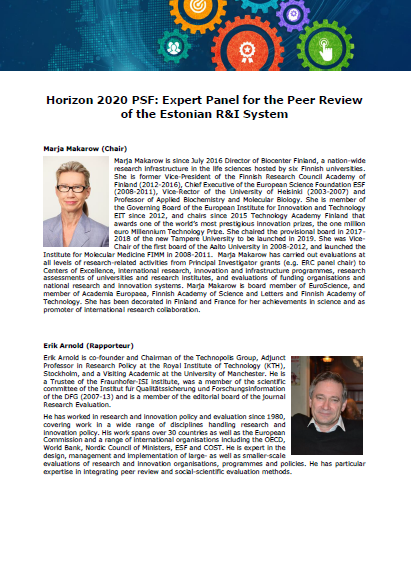
Expert panel of the Peer Review of the Estonian Research & Innovation System
